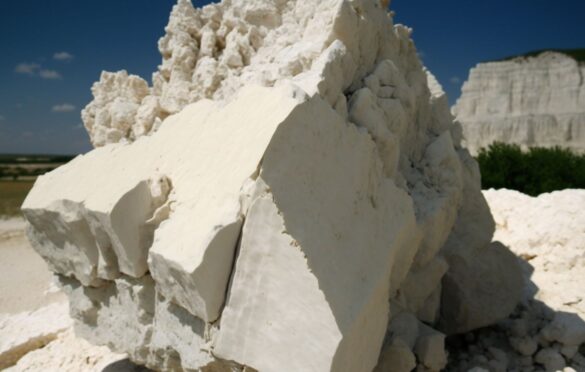Discover the Secrets of Limestone: The Rock That Has Shaped Our World!

Limestone is a sedimentary rock that forms over millions of years through the accumulation of calcium carbonate (CaCO3) in marine environments. The gradual buildup of shells, coral, and other organic debris, combined with chemical precipitation, leads to the formation of limestone. Limestone is one of the most common rocks on Earth, and is found in a variety of locations and forms.
Types of Limestone
There are many different types of limestone, each with unique characteristics and uses. Some of the most common types of limestone include chalk, coquina, fossiliferous limestone, and travertine. Chalk is a fine-grained limestone that is often used in construction, while coquina is a type of limestone made up of broken shells and coral. Fossiliferous limestone contains visible fossils, and travertine is a layered limestone that is often used for decorative purposes.
Distribution of Limestone
Limestone is found all over the world, but some of the largest deposits are located in the United States, China, and Russia. In the US, limestone is most commonly found in the Midwest and southern regions. Some other notable locations for limestone deposits include the Mediterranean region, the Caribbean, and Australia.
Mechanical Properties of Limestone
Limestone has a range of mechanical properties that make it suitable for a variety of uses. Its compressive strength can vary depending on its composition and texture, but it generally ranges from 30 to 250 MPa. Limestone is also a relatively soft rock, with a Mohs hardness of 3, making it easy to cut and shape for use in construction and other applications.
Uses of Limestone
Limestone has a wide range of uses due to its unique properties. One of the most common uses for limestone is in the construction industry, where it is used as a building material for everything from roads and bridges to homes and commercial buildings. Limestone is also used in the production of cement, which is a key component of concrete.
Limestone is also used in agriculture to help improve soil quality, neutralize acidity, and provide essential nutrients for plants. In addition, it is used as a flux in the steelmaking process, and is a key ingredient in many chemical products, such as detergents and fertilizers.
Conclusion
Limestone is a versatile and widely-used rock that has played a crucial role in many aspects of human society. Its unique properties and composition make it suitable for a wide range of applications, from construction and agriculture to steelmaking and chemical production. By understanding the various types of limestone, its mechanical properties, and its many uses, we can better appreciate the importance of this common yet often overlooked rock.
